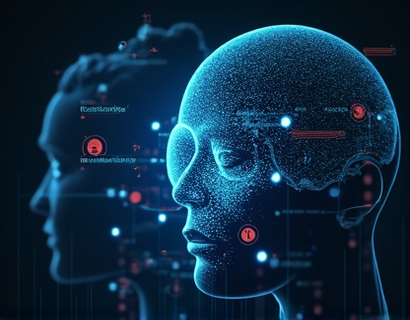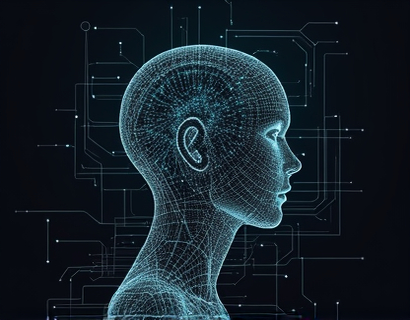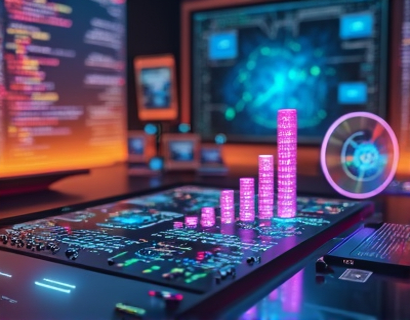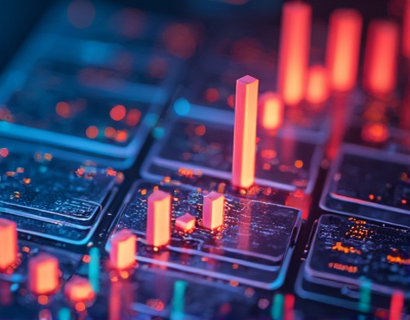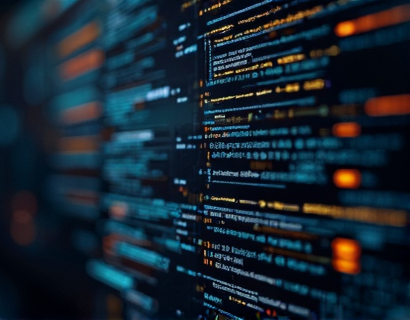AI and Crypto Convergence: Revolutionizing Blockchain Finance with Intelligent Solutions
The intersection of artificial intelligence (AI) and cryptocurrency is a rapidly evolving domain that promises to transform the landscape of finance and technology. This convergence, often referred to as AI-driven blockchain finance, leverages the strengths of both fields to create more efficient, secure, and innovative financial solutions. As tech-savvy innovators and enthusiasts delve deeper into this space, it becomes increasingly clear that the synergy between AI and cryptocurrency is not just a trend but a fundamental shift in how we approach financial systems.
The foundation of this convergence lies in the unique capabilities of AI and blockchain technology. AI, with its advanced algorithms and machine learning techniques, excels in pattern recognition, predictive analytics, and automated decision-making. Blockchain, on the other hand, provides a decentralized, transparent, and immutable ledger for transactions. When combined, these technologies can address some of the most pressing challenges in traditional finance, such as fraud, inefficiency, and lack of accessibility.
Enhanced Security through AI
One of the primary benefits of integrating AI into blockchain finance is the significant enhancement in security measures. Traditional blockchain systems rely on cryptographic algorithms to secure transactions, but they are not immune to sophisticated cyber attacks. AI can bolster these systems by detecting and mitigating threats in real-time. Machine learning models can analyze vast amounts of data to identify unusual patterns or anomalies that may indicate a security breach. For instance, AI-driven systems can monitor transaction flows and user behaviors to flag suspicious activities, thereby preventing fraud and unauthorized access.
Moreover, AI can improve the security of smart contracts, which are self-executing contracts with the terms directly written into code. Smart contracts are vulnerable to bugs and exploits, but AI can help in auditing and testing these contracts to ensure they function as intended. By simulating various scenarios and identifying potential vulnerabilities, AI can enhance the robustness of smart contracts, making them more reliable and secure.
Optimized Trading and Investment Strategies
The financial market is inherently data-driven, and AI brings a new level of sophistication to trading and investment strategies in the crypto space. AI algorithms can process and analyze vast datasets, including historical price data, market news, and social media sentiment, to make informed trading decisions. This capability allows for more accurate predictions and better timing of trades, potentially leading to higher returns.
Automated trading bots powered by AI can execute trades 24/7 without human intervention, reducing emotional biases and increasing efficiency. These bots can also adapt to changing market conditions by continuously learning from new data, ensuring that strategies remain effective over time. For investors, this means access to advanced trading tools that can level the playing field, even for those with limited experience.
Improved User Experience through Personalization
AI-driven personalization is another area where the convergence of AI and cryptocurrency is making a significant impact. By analyzing user data, AI can tailor financial services to individual preferences and needs. For example, a crypto wallet app powered by AI can provide personalized recommendations for investment strategies, risk management, and portfolio diversification based on the user's behavior and market conditions.
Furthermore, AI can enhance the user interface and experience of blockchain applications. Natural language processing (NLP) technologies can enable more intuitive and user-friendly interactions, allowing users to perform complex tasks with simple commands. This not only improves accessibility but also makes blockchain finance more approachable for a broader audience.
Efficient Network Management and Scalability
One of the major challenges facing blockchain technology is scalability. As the number of transactions increases, blockchain networks can become congested, leading to slower transaction times and higher fees. AI can play a crucial role in optimizing network management and enhancing scalability. By analyzing network traffic and transaction patterns, AI algorithms can dynamically adjust parameters such as block size, transaction fees, and consensus mechanisms to maintain optimal performance.
Additionally, AI can facilitate the development of layer 2 solutions, which are designed to handle a higher volume of transactions off the main blockchain. These solutions, such as state channels and sidechains, can significantly reduce congestion and improve transaction speeds. AI's ability to predict and adapt to network conditions makes it an invaluable tool in creating more scalable and efficient blockchain systems.
Fraud Detection and Compliance
Fraud and regulatory compliance are critical concerns in the financial industry, and AI offers powerful tools to address these issues in the crypto space. AI-driven systems can monitor transactions and user activities in real-time, identifying patterns that indicate fraudulent behavior such as money laundering or market manipulation. By flagging these activities, regulators and financial institutions can take proactive measures to prevent illegal activities and protect users.
Compliance with regulatory requirements is also streamlined through AI. Regulatory technology (RegTech) solutions powered by AI can help crypto businesses navigate the complex landscape of regulations across different jurisdictions. AI can automate the process of identifying and implementing compliance measures, ensuring that businesses stay within legal boundaries and avoid costly penalties.
Enhancing Decentralized Finance (DeFi)
Decentralized Finance (DeFi) is a rapidly growing sector within the crypto ecosystem, offering a range of financial services such as lending, borrowing, and yield farming without traditional intermediaries. AI can significantly enhance DeFi platforms by improving risk assessment, credit scoring, and portfolio management. Machine learning models can analyze user data and market conditions to provide more accurate risk evaluations, enabling better lending and borrowing decisions.
Moreover, AI can optimize yield farming strategies by identifying the most profitable opportunities and automating the process of reallocating assets to maximize returns. This not only increases the efficiency of DeFi protocols but also makes them more accessible and attractive to users.
Community and Resource Ecosystem
The convergence of AI and cryptocurrency has given rise to a vibrant community of tech enthusiasts and professionals. Online platforms, forums, and social media groups dedicated to this intersection are bustling with discussions, innovations, and collaborations. These communities serve as valuable resources for individuals looking to stay updated on the latest developments, share knowledge, and explore new opportunities.
Additionally, numerous research papers, white papers, and case studies are available, providing in-depth insights into the applications and potential of AI in blockchain finance. Conferences and meetups focused on this topic bring together experts to share their findings and network, fostering a collaborative environment that accelerates innovation.
Conclusion
The convergence of AI and cryptocurrency is reshaping the financial landscape, offering solutions that are more secure, efficient, and user-friendly. As this field continues to evolve, the potential for groundbreaking innovations is immense. For tech enthusiasts and professionals, the intersection of AI and blockchain finance presents a fertile ground for exploration and contribution. By staying informed and engaged, one can be at the forefront of this exciting revolution in finance and technology.



